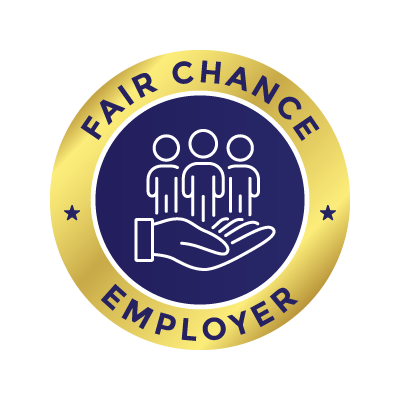At Rasa, we help people in Arizona move past a crime, arrest, or conviction, by clearing or reducing the impact of their criminal records. But not everyone qualifies for the same type of relief. That’s why it’s important to understand your options.
Arizona offers several ways to improve your record, depending on your situation:
- Expungement: Available only for certain marijuana-related offenses, this completely removes a conviction from public records.
- Record Sealing: Hides your record from most background checks, making it appear as if it never existed. Usually the best option for people who meet eligibility criteria.
- Set-Asides: Officially changes a conviction to show that the case was resolved and no longer carries a guilty verdict. However, the case will still appear on a person’s record.
- Certificates of Second Chance: Often paired with a set-aside, this certificate helps people with past convictions get jobs or professional licenses.
- Rights Restoration: Allows people with felony convictions to regain civil rights, like the ability to vote or own a firearm.
Each remedy serves a different purpose, and the right one for you depends on your record and goals. This page will help you compare your options so you can make an informed decision.
Not sure where to start? Use Rasa’s eligibility tool to find out what options you qualify for in just a few minutes. Let’s explore the best path forward for you.
Expungement in Arizona
Expungement is the most complete form of record clearing, but in Arizona, it is only available for certain marijuana-related offenses. If you were arrested, charged, or convicted for possessing, using, or transporting marijuana before the law changed, you may be eligible to have your record completely erased.
Who Is Expungement Best For?
Expungement is an option for people who:
- Were convicted of certain marijuana offenses before Arizona legalized recreational marijuana.
- Want to remove their criminal record from public view.
- Need a clean record for jobs, housing, or other opportunities.
What Does Expungement Do?
If you qualify, expungement:
- Completely removes the conviction from public records.
- Prevents employers and landlords from seeing the record on background checks.
- Restores certain rights that may have been affected by the conviction.
Is Expungement Right for Your Record?
Arizona’s marijuana expungement law applies to specific offenses, including the amount of marijuana in the case. Click here for more information on those offenses.
If your charge falls under one of these categories, you may be eligible to expunge your record permanently.
How Rasa Can Help with Expungement
Even though expungement is available, the process involves legal paperwork and court filings. Rasa makes it easy by:
- Checking if your marijuana conviction qualifies for expungement.
- Preparing and filing your expungement petition.
- Handling the legal steps so you don’t have to navigate the system alone.
If you have an old marijuana conviction, you may be able to clear your record completely. Use Rasa’s eligibility tool today to see if you qualify.
Record Sealing in Arizona
Record sealing is one of the most powerful ways to clear a criminal record in Arizona. When a record is sealed, it is hidden from most background checks, making it as if the conviction never happened. Unlike expungement, which completely removes a record, sealing keeps it from public access and gives you the legal right to answer no when asked about a criminal record on job and housing applications.
Who Is Record Sealing Best For?
Record sealing is a great option for people who:
- Want their criminal record to be invisible in most situations.
- Were arrested, charged, or convicted of an offense but have since met Arizona’s eligibility criteria.
- Those who have been out of the justice system for at least 2-3 years
- Want to get rid of some of the barriers a record creates.
What Does Record Sealing Do?
When a record is sealed:
- It does not appear in most background checks for jobs, housing, or financial aid.
- You do not have to disclose the conviction on most applications.
- It removes barriers to employment, education, and licensing.
Unlike a set-aside, which only changes the status of a conviction, record sealing makes it inaccessible to the public—providing stronger protection against discrimination.
Who Qualifies for Record Sealing?
Arizona allows record sealing for people who have met specific conditions, including:
- Completed their sentence, including probation or parole.
- Waited the required time period after their case ended (time varies based on the offense).
- Do not have certain disqualifying convictions, such as serious violent crimes.
How Rasa Can Help with Record Sealing
Sealing a record requires legal paperwork, court filings, and sometimes hearings. Rasa simplifies the process by:
- Determining if you qualify for record sealing.
- Drafting your personal statement and legal paperwork
- Preparing and filing your court petition.
- Handling any responses from the courts or prosecutors
- Ensuring you receive final orders and the record is sealed, if granted
- Guiding you through the legal process to ensure the best chance of approval.
A sealed record can give you a fresh start by making your past invisible in most areas of life. Check your eligibility today and take control of your future.
Set-Asides in Arizona
A set-aside does not erase a criminal record, but it does change the status of a conviction. A guilty verdict is 'set-aside’ from the record. While the record remains visible, a set-aside can help improve job opportunities, housing applications, and professional licensing by signaling that you have moved on in life and put your past behind you.
Who Are Set-Asides Best For?
A set-aside is a good option for people who:
- Do not qualify for record sealing but still want to improve their record.
- Have completed their sentence, including probation or parole.
- Want to show employers, landlords, or licensing boards that they have positively changed their life and that their record no longer represents them.
What Does a Set-Aside Do?
- Changes the status of a conviction to a set-aside, showing that the case has been set aside and the penalties have been lifted.
- Improves the way a record appears in background checks, showing that the court recognizes rehabilitation.
- Can come with a Certificate of Second Chance, which can help with employment and professional licensing.
A set-aside does not erase a record or hide it from background checks, but it removes the guilty verdict, making it clear that the case is no longer an issue.
Who Qualifies for a Set-Aside?
Most convictions can be set aside, but there are some exceptions. Eligibility generally depends on:
- Completion of all sentencing requirements, including probation or parole.
- No pending criminal charges.
- The type of offense—certain violent or dangerous crimes may not qualify.
- A person’s time crime-free and out of the justice system.
How Rasa Can Help with Set-Asides
Applying for a set-aside involves filing legal paperwork and proving that you have met the necessary requirements. Rasa simplifies the process by:
- Determining if you qualify for a set-aside.
- Drafting your personal statement and legal paperwork
- Preparing and filing your application.
- Handling any responses from the courts or prosecutors
- Ensuring you receive final orders and the record is set-aside if granted
- Helping you obtain a Certificate of Second Chance if applicable.
A set-aside can make a big difference in how your record affects your future. Check your eligibility today and take the next step toward a clean slate.
Certificates of Second Chance in Arizona
A Certificate of Second Chance helps people with past convictions move forward by removing barriers, especially for licensing or other occupational credentials. While it does not erase a criminal record, it offers legal protection against discrimination and can make it easier to rebuild your life and shields landlords and employers from liability related to hiring or renting to you. Often, a Certificate of Second Chance can be granted at the same time as a set-aside.
Who Are Certificates of Second Chance Best For?
This certificate is a great option for people who:
- Have a criminal record but want better access to jobs and professional licenses.
- Have received a set-aside, with other qualifications, or want to apply for one.
- Need a legal tool that reduces restrictions caused by past convictions.
What Does a Certificate of Second Chance Do?
- Provides protection against discrimination based on a past conviction.
- Removes barriers to getting a professional license for certain careers.
- Helps people reenter the workforce by showing rehabilitation and responsibility.
- Shields landlords and employers from liability related to hiring or renting to you.
While the criminal record remains visible, the certificate shows that the court recognizes rehabilitation, making it easier to move forward. Certificates of Second Chance are very helpful for finding or improving employment.
Is a Certificate of Second Chance Right for Your Record?
Most people who receive a set-aside automatically qualify, but certificates may also be granted to others based on their case. Eligibility depends on:
- Completion of all sentencing requirements (including probation or parole).
- The type of offense, as some serious crimes may not qualify.
- How long a person has remained crime-free and out of the justice system.
In some types of set-asides, a record holder is also automatically eligible for a certificate of 2nd chance. The full list of charges that lead to this automatic issuance can be found here.
How Rasa Can Help with Certificates of Second Chance
Applying for a Certificate of Second Chance involves legal paperwork and court filings. Rasa makes it easy by:
- Determining if you qualify.
- Drafting your personal statement and legal paperwork
- Preparing and submitting your application.
- Handling any responses from the courts or prosecutors
- Ensuring you receive final orders and certificates if granted
A Certificate of Second Chance can open doors to new opportunities. Check your eligibility today and take the next step toward a better future.
Rights Restoration in Arizona
A rights restoration allows people with felony convictions to regain important civil rights that were lost due to their criminal record. In Arizona, certain rights—like voting and firearm ownership—are automatically lost after a felony conviction. If someone has just one felony on their record, these rights are normally restored automatically. However, if someone has more than one felony a Rights Restoration is required to get these rights back. Restoring these rights can help individuals in many ways, including making them a part of a community and ensuring they have access to important civic engagement.
Who Is Rights Restoration Best For?
Rights restoration is a great option for people who:
- Have more than one felony conviction and want to regain their right to vote, serve on a jury, or run for public office.
- Want to restore their gun rights, if eligible.
- Have completed all sentencing requirements and demonstrated rehabilitation.
What Rights Can Be Restored?
Depending on the case, rights restoration in Arizona can include:
- Voting rights – The ability to register and vote in elections.
- Jury service – The right to serve on a jury in Arizona courts.
- Holding public office – The ability to run for or be appointed to government positions.
- Firearm rights – The ability to legally own or possess a gun
Some rights, like voting, may be automatically restored after completing a first-time felony sentence, while others require a formal request to the court. Rasa can help with both processes.
Who Qualifies for Rights Restoration?
In general, you may qualify if:
- You have completed all terms of your sentence, including probation or parole.
- You do not have pending criminal charges.
- You meet the waiting period for rights restoration (if applicable).
Not sure if you qualify? Use Rasa’s eligibility tool to check your options in minutes.
How Rasa Can Help with Rights Restoration
Restoring your rights requires legal paperwork, court filings, and sometimes hearings. Rasa makes the process simple by:
- Determining if you are eligible.
- Drafting your personal statement and legal paperwork.
- Preparing and filing your restoration application.
- Ensuring you receive final orders and rights are restored if granted
- Guiding you through the legal steps to ensure the best chance of approval.
Restoring your rights can give you a fresh start and new opportunities. Check your eligibility today and take the first step toward reclaiming your future.
Take the Next Step
Restoring your rights or clearing your record can open new doors and give you a fresh start. Whether you qualify for expungement, record sealing, a set-aside, a Certificate of Second Chance, or rights restoration, taking action now can make a real difference in your future.
At Rasa, we make the process simple. Our eligibility tool helps you find out what options are available to you in just a few minutes.
Don’t let your past hold you back. Check your eligibility today and take control of your future!



